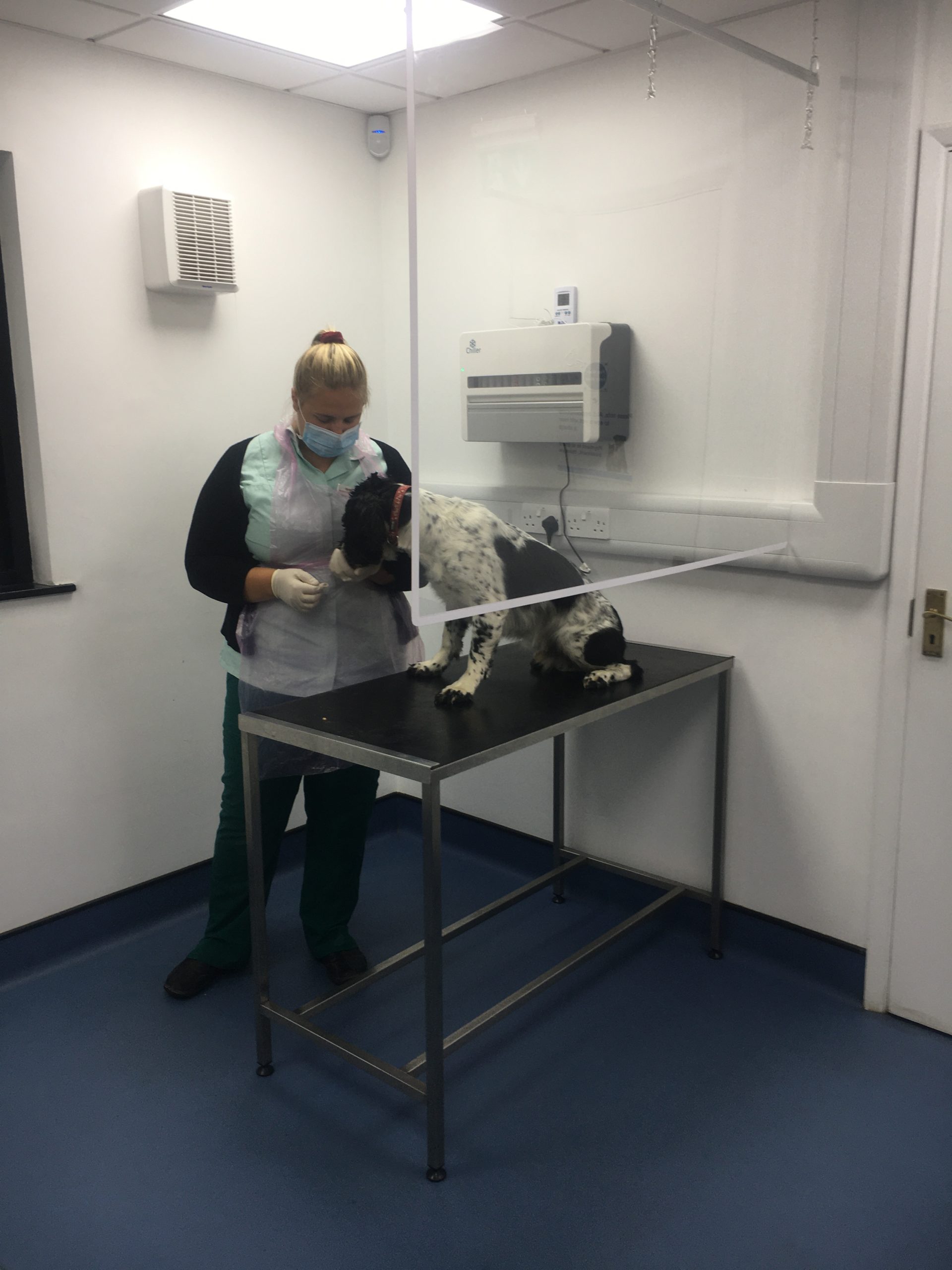
Veterinary Blog – Situational Medication
Pre-event (Situational) Medication
Whenever we are working with fearful or potentially aggressive animals, we should consider all measures that could help the animal cope with the situation. This could include
- Working alongside a qualified behaviourist (https://fabclinicians.org/find-a-behaviourist/) to change the animal’s emotional response
- Avoiding triggers that the animal is unlikely to be able to cope with. For example, could non-essential vet visits be delayed, or the animal could stay with a friend in a quiet rural location on the night of a planned fireworks display?
- Taking measures to reduce the impact of the trigger. For example, could vet visits be carried out at home, outside or in a quiet room with extra time and calm handling? Appropriate safe hiding places can be provided for animals.

There will however be occasions when an animal will be exposed to a stimulus above the level which they are currently able to cope. This could include essential veterinary visits or unavoidable noise events. In these cases, the appropriate use of situational medication can greatly improve the animals welfare, limit the impact of these events on future behaviour, increase safety for those handling the animal and reduce the distress experienced by the animals owner. Using medications does not replace the need for low stress handling techniques, or the need for a Behaviour Modification Plan.
The FAB Clinicians Veterinary Subcommittee have produced a handout to provide a quick guide to the commonly available options in the UK and their use. This handout is available to all Veterinary Surgeons on request – please email the office (info@fabclinicians.org) to request a copy stating which practice you are working for. If you are an FAB Clinicians member the handout can be downloaded from the members area of the website.
All medications must be prescribed by a veterinary surgeon for the specific animal and agreed scenarios, with consideration given to the animals age, health status and any other medications / supplements or nutraceuticals the animal may be receiving. Many of these medications are not veterinary licensed and so should be prescribed in accordance with the prescribing cascade.



Every patient is unique and will have an individual response to the medications. There will be an element of trial and error to find the right medications, at the right dose, to be optimally effective for the individual patient.
Generally, it is most appropriate to begin with a single medication at a moderate dose. Depending on the individual response, the dose can be increased as needed, or polypharmacy can be considered.

